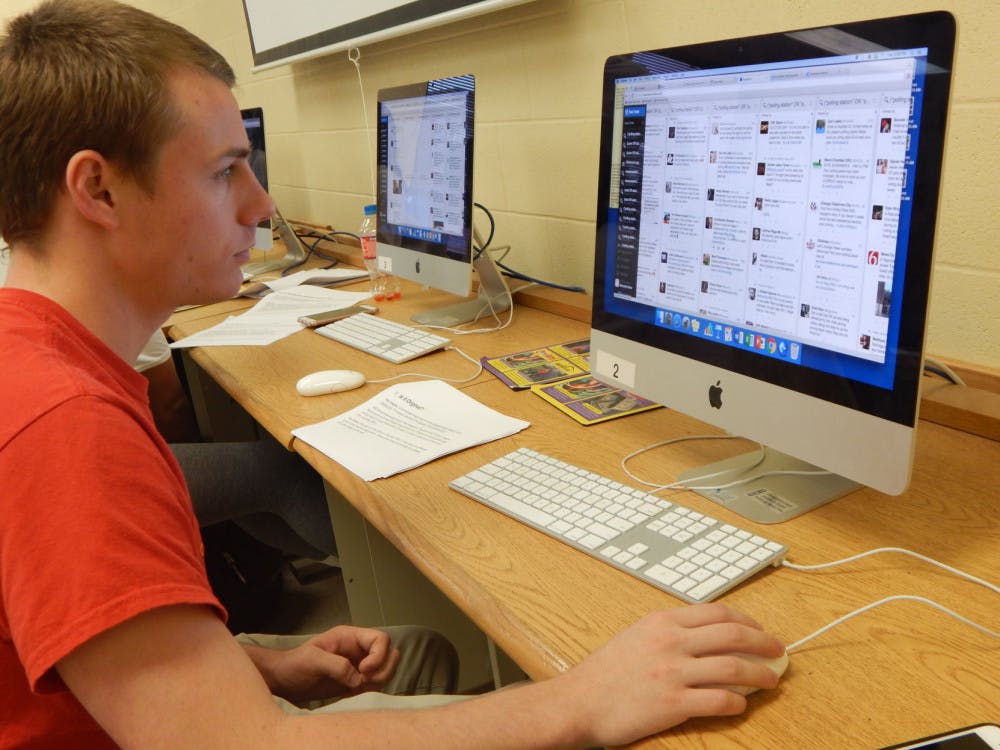
Journalism senior, Jacob Woloshin, monitors TweetDeck to find tweets of users in Oklahoma who had problems at the voting polls for Election Land.
This year, University of Memphis journalism students were encouraged to get involved in the 2016 election, not only to exercise their right to vote, but to volunteer to help professional journalists get the inside scoop on problems that happened on election day.
Professor Joseph Hayden of the journalism department helped to make University of Memphis one of 13 colleges in the United States to participate in Electionland, an organization that monitors voting poll problems during the election.
“This is the first of its kind experiment involving journalism and democracy,†Hayden said. “Electionland gives student journalists the opportunity to help professional journalists find stories that would otherwise cost a professional several hours to get. By finding and fact-checking social media posts all day and sharing them to the Check website, professional journalists of ProPublica, USA Today, Gannett and other news organizations are able to follow story leads and ultimately turn a social media post into an investigative story.â€

Journalism students participated in the Electionland project. The goal is to warn others about problems at the polls
U of M students who volunteered to be a part of Electionland were in charge of monitoring posts made on social media platforms, such as Facebook and Twitter, from individuals who posted or tweeted about issues they had at the polls on election day in Tennessee, Kentucky and Oklahoma, while departments from other schools around the country covered other states.
Students used TweetDeck and Facebook Signal to find posts that were related to voting poll problems via hashtags such as #maga, #Imwithher, #VoterIDIssues, #DownPolls, #longlines and #rigged. Once a student found a post he or she deemed newsworthy, such as “I’ve been in line for two hours and still cannot see the doors of the polling place. #longlines,†he or she was responsible for fact checking the information or picture posted.
Intel Techniques Search Tools was used to see if the person who posted about the problem on Facebook also tweeted the same issue on Twitter. Fact checking added to credibility of the post and eliminated the question of hoax.
Once verified, the student shared the social media post along with the user’s information and originality to the Check Verification Project online, where professional journalists could use information to start investigating whether a news story could be pulled from the Facebook or Twitter post.
“As a student who understands social media and how to find newsworthy tips, I got experience with data mining and was able to join a cause that saves professional journalists time by pushing them tips and leads to potential stories,†Jacob Woloshin, journalism senior, said.






